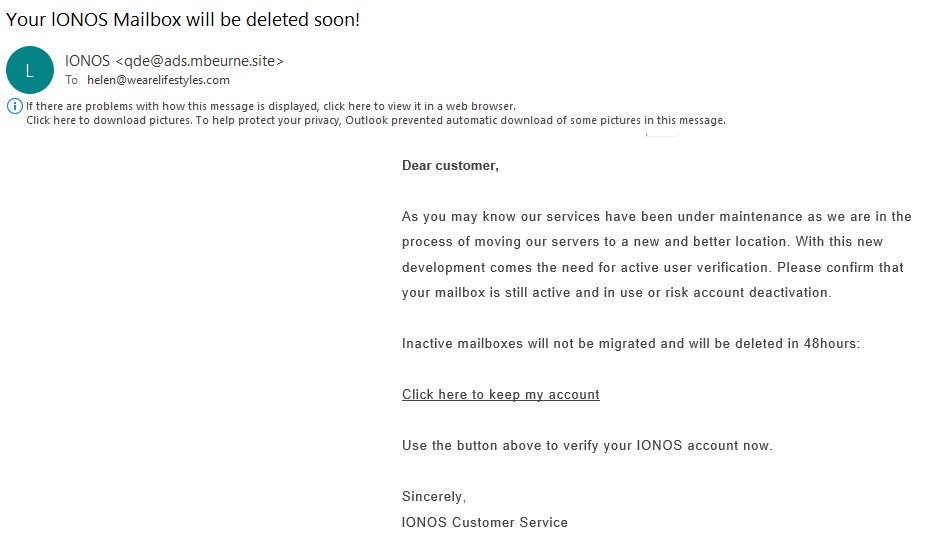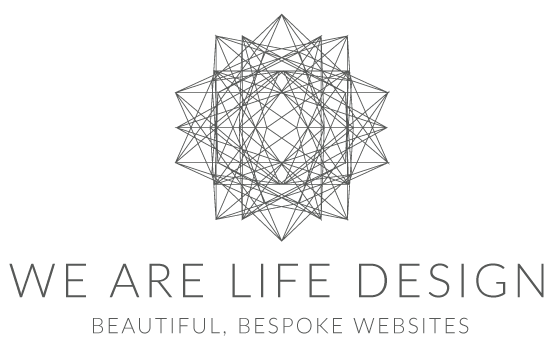We’re probably all used to – and now very wary of – the obvious scam emails that seem to drop into our inboxes on a daily basis. You know the ones…
- the sender is on their deathbed, with no living relatives, and you have been chosen to be the recipient of all of their millions;
- someone from a foreign state, is in peril, and needs to move their substantial wealth quickly, and if you help to facilitate this, you will be a beneficiary to the tune of a lot of money;
- a shady character has been watching you and your online activity – usually involving you spending a lot of time either watching porn or involved in it – and unless you transfer lots of money, your practices will be exposed;
- your email account has been compromised and unless you “click on this link” everything will be deleted within a certain time limit;
These emails are always identifiable, not only through the ludicrous content, but by other clues including the email formatting (different fonts, upper & lower cases in the wrong places, spelling errors, gawdy colours etc) and most obvious of all, the sender’s email address. Usually completely nonsensical and one that doesn’t even look like a genuine email address. But scammers are becoming more sophisticated, and even though we feel we can easily spot one of these daft emails, sometimes we have to take a second look, just to be absolutely sure. One such email appeared in my inbox recently…

This did make me look more closely, because it was sent to a genuine email address of mine and we do host all of our email accounts with IONOS. The email was also well written and professional in style with none of the features described above. It was only when I looked at the sender’s email – qde@ads.mbeurne.site – that I knew it wasn’t genuine, and that there was no way I was clicking on that link.
We host and manage email accounts on behalf of clients and we know that if there are issues with any client emails, IONOS will always contact us. But, scammers, as we know are clever and sophisticated in their scammy ways, and so we also knew that it was likely that any of our clients could have received a similar email. And our concern is always that, without thinking, they may click on the link, as that’s what the genuine looking email is telling them to do – and that would open up a whole host of horrors.
But we have the backs of our clients. We have a mailing list and as soon as a client comes on board with us, we ask if they give permission to be added to this, as we’d never just assume that they want to hear from us. Once on this list, they will receive communications from us – but only when we think we have something important or beneficial to communicate. We don’t send emails for the sake of sending them. We don’t have a day in the week/month when we schedule emails, because sometimes we’ll have nothing to tell our clients. We’d rather send something only when necessary, because then they will know it’s important and that it’s worth reading.
We think this is an additional service we offer at We Are Life Design – providing a bit of peace of mind for clients, rather than leaving them to their own devices and ultimately having to sort out an issue which is out of their comfort zone or experience.Our advice to our clients is ALWAYS, ALWAYS, ALWAYS contact us if they are not sure about the content of an email or who it is from and to NEVER EVER click on any links or images contained in the email. We can check its authenticity and save a whole heap of trouble and unnecessary work. And, perhaps even more importantly, we reassure clients that they are not bothering us or wasting our time or causing us extra work if they contact us in this regard – much better that we check and just say “delete it”, rather than having sort out a problem which is horrendous. And avoidable.
Another way we hope that we build long standing and trusted relationships with people who trust their design to us.
